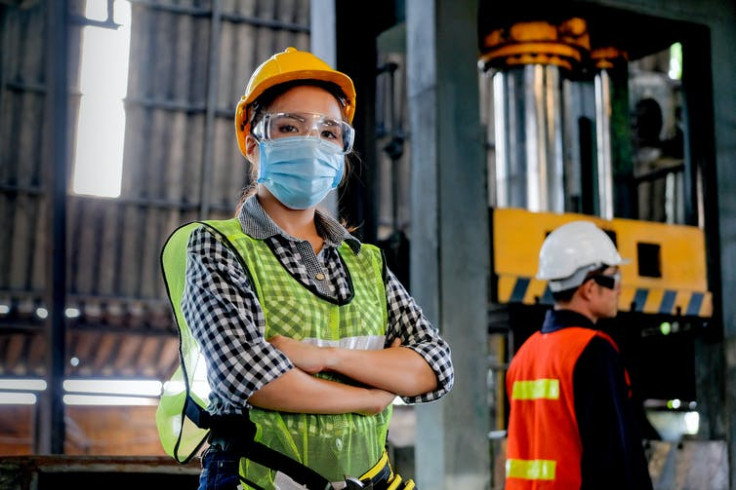What trade unions do and what joining one means
Unions give employees a voice – both as individuals and as a collective – that is independent of their employer.
Union membership among young workers today is incredibly low. Industrial action scholars speak of a worldwide trend towards the so-called de-unionisation of the young.
In 1980 80% of the British workforce was covered by collective bargaining between employers and unions. By the 2000s, that figure had fallen to around 30%. And the numbers have kept falling, in particular for young people. UK government statistics show that in 2021, only 4.3% of 16 to 24-year-old workers were members of a union. This figure rose to 19.8% for the 25 to 34 category.
In their introduction to the 2015 compendium, Young Workers and Trade Unions: A Global View, scholars Andy Hodder and Lefteris Kretsos explain that it's not so much that young professionals view unions more negatively than their older counterparts. Rather, they tend to work in jobs and industries where union representation doesn't exist. Crucially, for the most part, they do not know what unions are, what they do – and what they have done to change the world of work.

This article is part of Quarter Life, a series about issues affecting those of us in our twenties and thirties. From the challenges of beginning a career and taking care of our mental health, to the excitement of starting a family, adopting a pet or just making friends as an adult. The articles in this series explore the questions and bring answers as we navigate this turbulent period of life.
What unions do
Unions give employees a voice – both as individuals and as a collective – that is independent of their employer. Employers are more likely to engage through consultation and negotiations with the views of their workers where workers can speak as one. This is simply because it is more efficient and provides legitimacy to the result of these negotiations.

For the workers, there is strength in numbers. They can club together to provide the resources to allow their union to negotiate on their behalf. The vast majority of collective disputes are settled without any industrial action. But having the ability to engage in such collective action, if necessary, can be vital, as many groups of workers this summer are finding out.
Quite what is negotiated has resulted in a number of procedural and substantive benefits to workers. First, unionised workplaces have been shown to be fairer than non-union workplaces. There is less wage disparity between different employees.
Unionised workplaces are also healthier places to work. Workers are subjected to less stress and more attention is paid to keeping working hours within healthy limits.
Similarly, unions have also been shown to make workplaces safer. There are fewer accidents and fatalities because workers in unionised workplaces are more likely to be given the equipment they need to work safely, whether ergonomically assessed workstations, or clothing to protect themselves from noxious substances.
And then there's the question of pay. Union members still earn more than non-union members. Some recent pay deals negotiated by unions, such as those led by the Unite union on behalf of airport staff, dockers and carmakers have outstripped the current rate of inflation.
Lastly, unions are able to lobby governments to push for greater employment rights for workers. They also work to stop any existing rights being withdrawn.
Research indicates that these benefits lead to happier, more satisfying and more productive workplaces as well as more democratic and fairer societal outcomes. This in turn is a benefit for employers.
How unions assert employees' rights
Some experts, including US economist Diana Furchtgott-Roth have argued that unions are no longer needed. "Workers don't need unions because the economy is booming, and workers face a sellers' market for their skills. They also don't want to pay substantial union dues," Furchtgott-Roth wrote in March 2022.
While it is true that workers now have more individual rights in law covering minimum wages, discrimination, holidays and working hours, many of these things we now take for granted were achieved by union members acting collectively.
And still today, most workers do not know what their rights are or how to enforce them, with some afraid to for fear of retribution. This is particularly true of people just starting out in their careers, who, research shows, increasingly find themselves in the most precarious and insecure jobs.

In 2009, industrial relations scholar Linda Dickens pointed out that trade unions remained "effective positive mediators" for ensuring that the rights of workers that are enshrined in our laws can be translated into changes in the workplace. In other words, collective action is still the best way by which to ensure that individual employees' rights are respected and upheld.
Non-union bodies like the UK's Citizens' Advice Bureaux – which many people go to for help at work – are so under-resourced that they recommend union membership as the most effective way to resolve workplace grievances.
While union membership has fallen significantly over the last 20 to 30 years, this does not mean that non-union workers do not want to be in unions. It is often the case that they have no access to unions. Some employers have also made it known that they are anti-union.
The average union member is no longer a male, blue-collar manual worker but a female white-collar worker. Indeed, the highest levels of union membership are among teachers, health workers, social workers and civil servants.
People from across the contemporary employment spectrum – including journalists, actors (like Benedict Cumberbatch), writers, lawyers, doctors and musicians (like folk singer Iona Fyfe) are union members. They see no conflict between unions representing their rights and their ability to be successful in their careers.
Gregor Gall is the director of the Jimmy Reid Foundation, the editor of Scottish Left Review, co-editor of Scottish Labour History and a member of the UCU union. He is not a member of any political party.






















